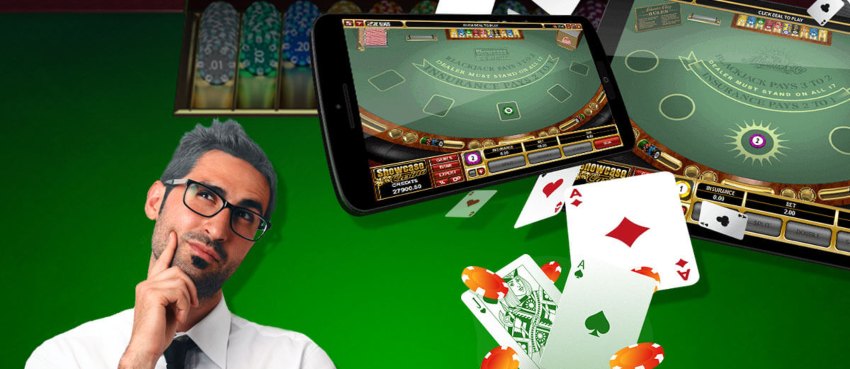In the vast world of online gambling, many players have always been intrigued by the burning question, “Do online casinos cheat?” While everyone hopes for a fair game, the skepticism isn’t unwarranted. With money at stake and the digital barrier concealing operations, it’s only natural for players to harbor concerns about the legitimacy of the games they’re playing.
It’s fascinating how rapidly the gambling scene has transitioned from traditional brick-and-mortar casinos to online platforms. In this migration, several websites have sprung up, offering analyses and reviews of these online platforms. For instance, if you’re interested in cryptocurrency-based gambling, you might find sites like www.vec.ca/crash-gambling-sites/ useful. It provides a list of the best crypto crash gambling sites to get you started without any hassle. However, regardless of whether you’re gambling with cryptocurrency or fiat money, the fundamental question remains: can you trust the online casino?

From Past Deceptions to Present Trust: Online Casino Evolution
The contemporary online casino realm is under stringent regulation, a far cry from its infancy in the mid-90s. When the digital gambling scene first emerged, it was marred by several nefarious entities keen on swindling players. Although online casinos have been under a regulatory lens since 2013, the skepticism among players from those early days lingers.
Offshore casinos, operating beyond local legal purview, are remnants of those dubious times. Without a regulatory body overseeing these platforms, players left in the lurch due to unfair practices have no recourse.
A Fair Game Play Insight
The notion of online casinos being rigged is largely a myth. Echoing Robert De Niro’s sentiment in Casino, it’s true that casinos have an inherent edge to stay profitable. However, it’s also essential for players to have a shot at winning to keep the games appealing.
Licensed online casinos ensure their games are engineered for random outcomes. Over time, players will encounter both winning and losing streaks. Yet, our innate tendency to seek patterns, as outlined in Kahneman’s theory of human behavior (www.ubs.com/), might mislead us into perceiving a rigged system amidst these streaks of luck.
It’s crucial to differentiate between a house edge, which is legitimate, and a rigged game, which is illicit.
Casino Software: A Cheating Machine or Not?
Let’s dismantle this misconception:
Casinos have no logical reason to resort to cheating as they are already in a lucrative position. The essence of casino operations lies in short-term volatility, where players do have a decent chance to win, and indeed, they often do.
Numerous online casinos feature multiplayer games, allowing various players to convene at a single table, placing diverse bets on the same occurrence. Envision a scenario at a roulette table where different bets are placed, covering the entire betting grid. In such a setup, it’s hard to deduce whom the software would be rigged against, if at all. Regardless, over an extended period, the casino is poised to retain a marginal gain of around 2.7% from the cumulative bets made by all participants.
In bygone days, online casinos presented lucrative bonuses, sparking the emergence of a unique niche — bonus hunting. This practice entailed systematic exploitation of bonuses for profit. While some players profited substantially during that era, the idea that casinos could have manipulated software to counter bonus hunters while still offering appealing bonuses is unfounded. Instead, casinos adopted alternative strategies. They amended the stipulations for bonus wagering by elevating the wager requirements, rendering it unviable to chase bonuses. Nowadays, bonuses cater more to recreational players aiming to extend their gaming time and enjoy the gameplay without depleting their funds.
Independent entities like eCOGRA, iTechLabs (https://itechlabs.com/), and TST are dedicated to conducting regular software assessments for associated casinos. These organizations ensure that the gameplay remains unbiased, even in training or demo modes. For a trustworthy gaming experience, players should seek casinos offering games endorsed with “fair play” certificates from these reputable bodies. Prominent casino software developers like NetEnt, Microgaming, and Playtech proudly bear such certifications, reflecting their commitment to fair and transparent gaming.
The online casino experience
The distinction between the communal ambiance of brick-and-mortar casinos and the solitary nature of online gambling can significantly impact player perception. In a traditional casino, the collective winning and losing create a sense of a fair playing field, even if you’re on a losing streak.
Contrast this with the online setting where your focus is solely on your individual wins and losses. The lack of a comparative perspective may foster a notion of unfair play, especially during a losing streak. However, the reality is, games like blackjack adhere to the same probability principles online as they do in physical casinos, ensuring a fair gaming environment. The truth is, while there are occasional bad apples in the bunch, the majority of online casinos are committed to offering a fair and enjoyable gaming experience. By being informed and cautious, players can enjoy the thrill of the gamble without undue worry about being cheated. Remember, always gamble responsibly and know when to walk away.